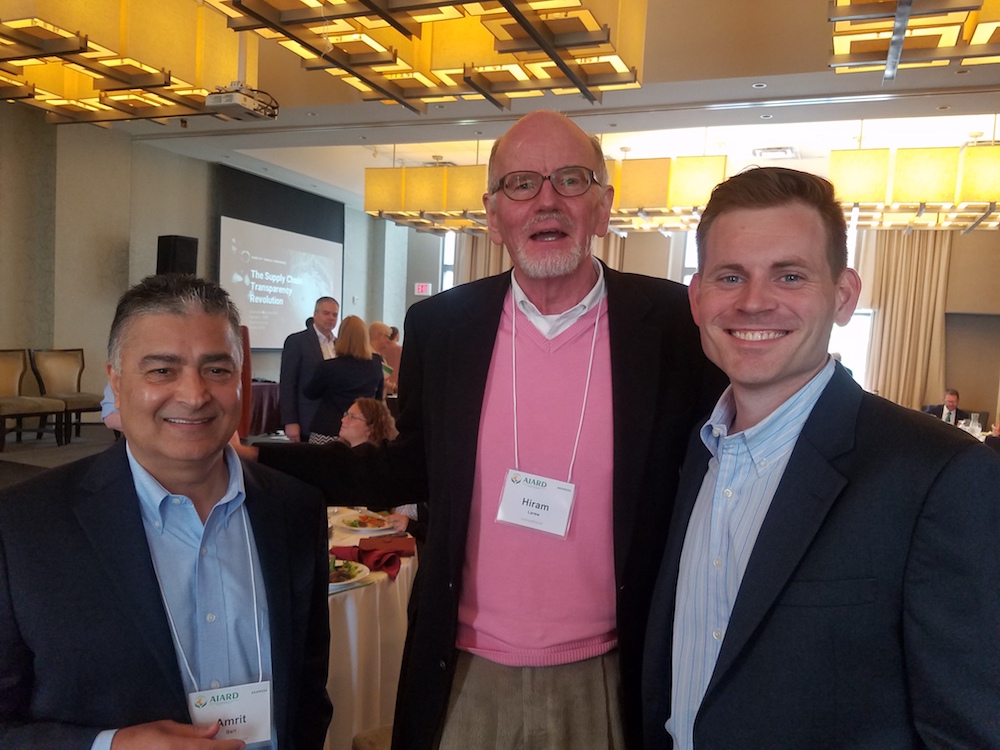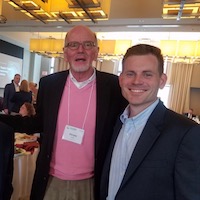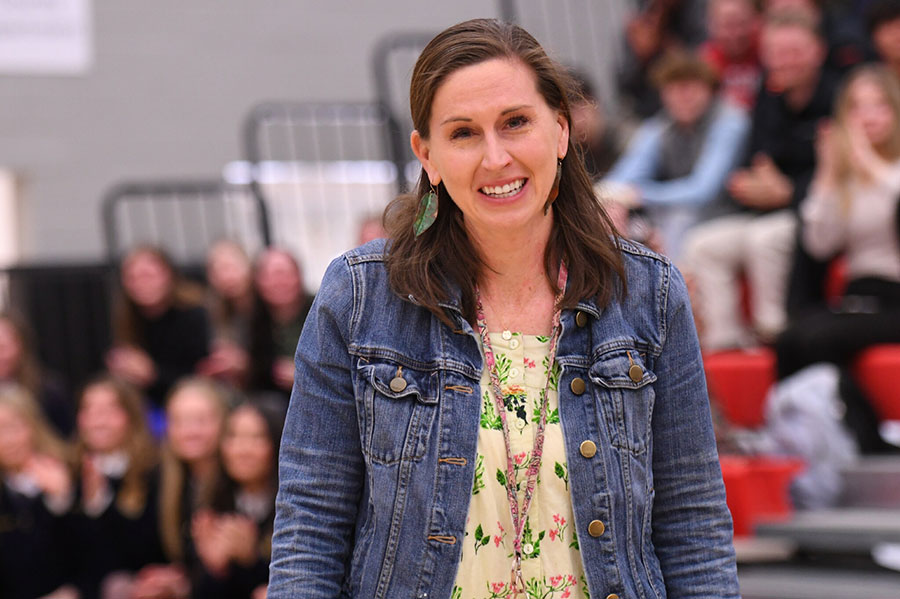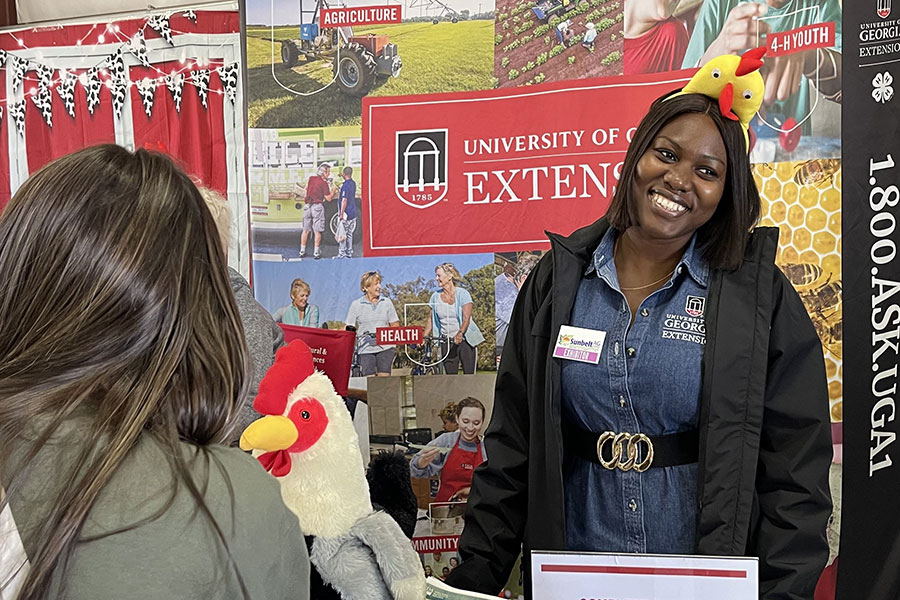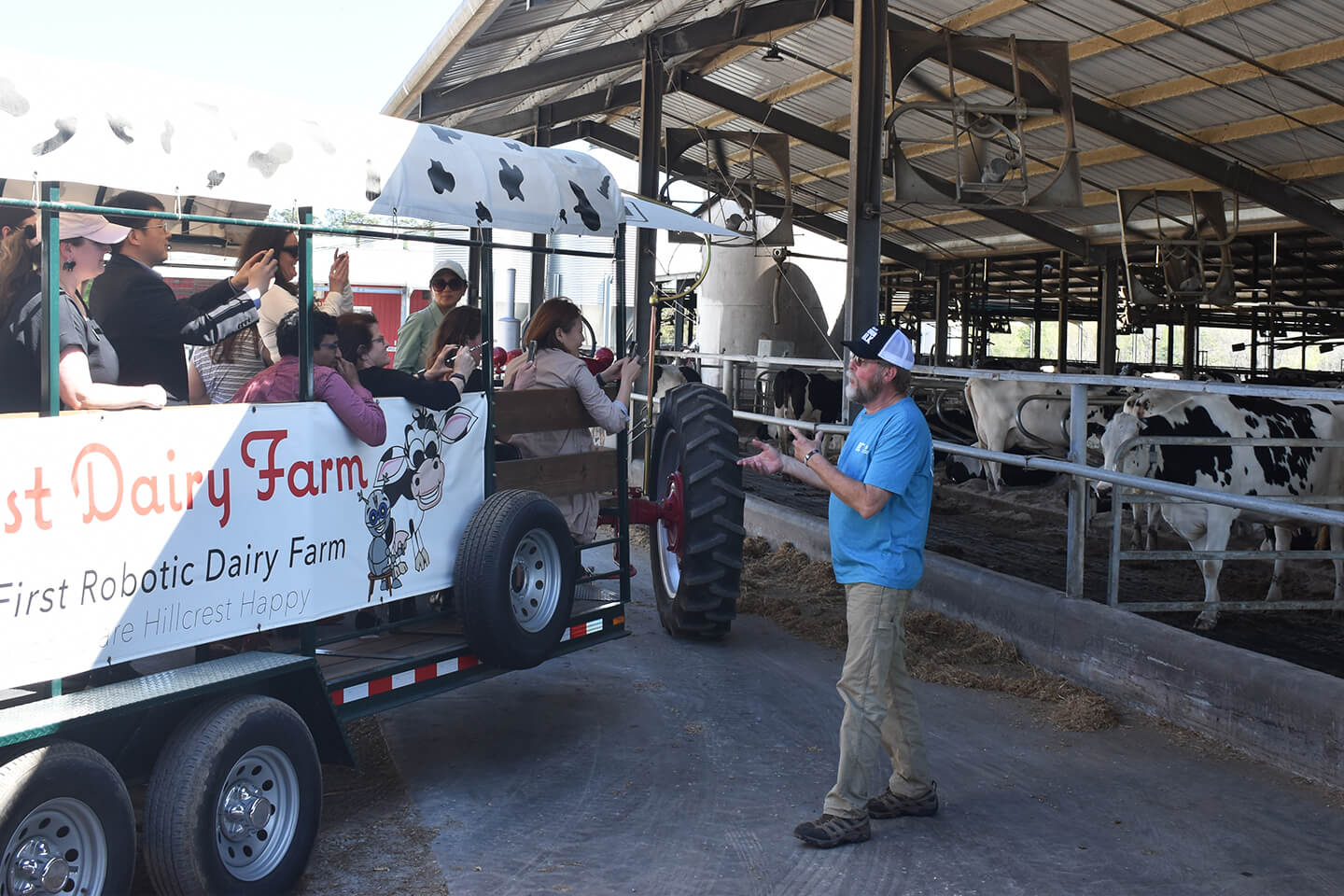After spending a year in Ghana working to provide support to farmers and leading a 4-H-style program for children, Chandler Mulvaney has a passion for international agriculture.
But that passion wasn’t enough to pay his way to this year’s conference of the Association for International Agriculture and Rural Development (AIARD), the premier agricultural development association in the U.S. To meet the cost, the University of Georgia master’s degree candidate, who is studying agricultural and environmental education, turned to the UGA College of Agricultural and Environmental Sciences Office of Global Programs and UGA alumnus Hiram Larew.
Larew, who retired in 2015 as director of international programs for the U.S. Department of Agriculture National Institute of Food and Agriculture (NIFA), has funded a scholarship for students to attend the AIARD conference for the past two years.
“International agriculture is so important to Georgia’s economy and to UGA CAES programs,” Larew said. “I’ve been pleased to support international agriculture students from UGA like Chandler and, last year, Maria Moore, as they’ve attended the AIARD national conference. Being able to attend AIARD will hopefully boost their interests and startup careers.”
The meeting in Washington, D.C., provided Mulvaney with many eye-opening opportunities and the chance to meet representatives of industry, universities, government agencies and nongovernmental organizations.
While many professional meetings have a reputation for being dry, Mulvaney says the AIARD conference was small and community-driven.
“Everyone seemed to know each other,” he said. “But that meant everyone knew those of us who weren’t members. They welcomed us and came up and talked with us throughout the conference.”
In addition to meeting Larew and other AIARD members, Mulvaney also attended presentations addressing issues in international agriculture. This year’s conference was called “Business 'Un'usual: Aligning Critical Intersections of Agriculture, Health and Food” and, among other issues, explored the ways technical interventions intersect with cultural factors in creating change. This topic is of particular interest to Mulvaney, who is headed to Uganda later this fall to conduct research for his master’s thesis.
“I’ll be gathering qualitative research in a village in Uganda that focuses on farmers’ decisions to adopt or reject the use of fertilizer,” he said. “Most research focuses on the economic factors for adoption of new farming practices, but there are also cultural reasons that can influence decisions. That’s what I want to uncover by interviewing both men and women farmers.”
Mulvaney’s research builds on his experiences as a member of AgriCorps, a nongovernmental organization headquartered in Texas that sends agricultural professionals to Ghana and Liberia.
“The area where I worked was very well developed in agricultural innovation,” Mulvaney recalled. “There was a great forestry and timber industry as well as farmers who raised maize, millet, soybeans, tomatoes, cucumbers and peppers.”
But what really amazed Mulvaney was the historic recall the farmers had when discussing past seasons.
“There were several farmers, subchiefs in their villages, who could recall rainfall to the date,” he said. “When I suggested the rainy season had ended, for example, they knew just how many more times it would rain. And they were right.”
As he reflects on his experiences at AIARD, Mulvaney said that he’s grateful to have had the opportunity to meet professionals who share his passion for international agriculture.
“I hope to someday have a career that is focused on the types of applied agriculture that so many of the AIARD members seem to have,” he said. “I hope I’m able to connect my research back to working with farmers in Africa, assessing their needs and helping them.”
For more information about the CAES Office of Global Programs, visit global.uga.edu.

